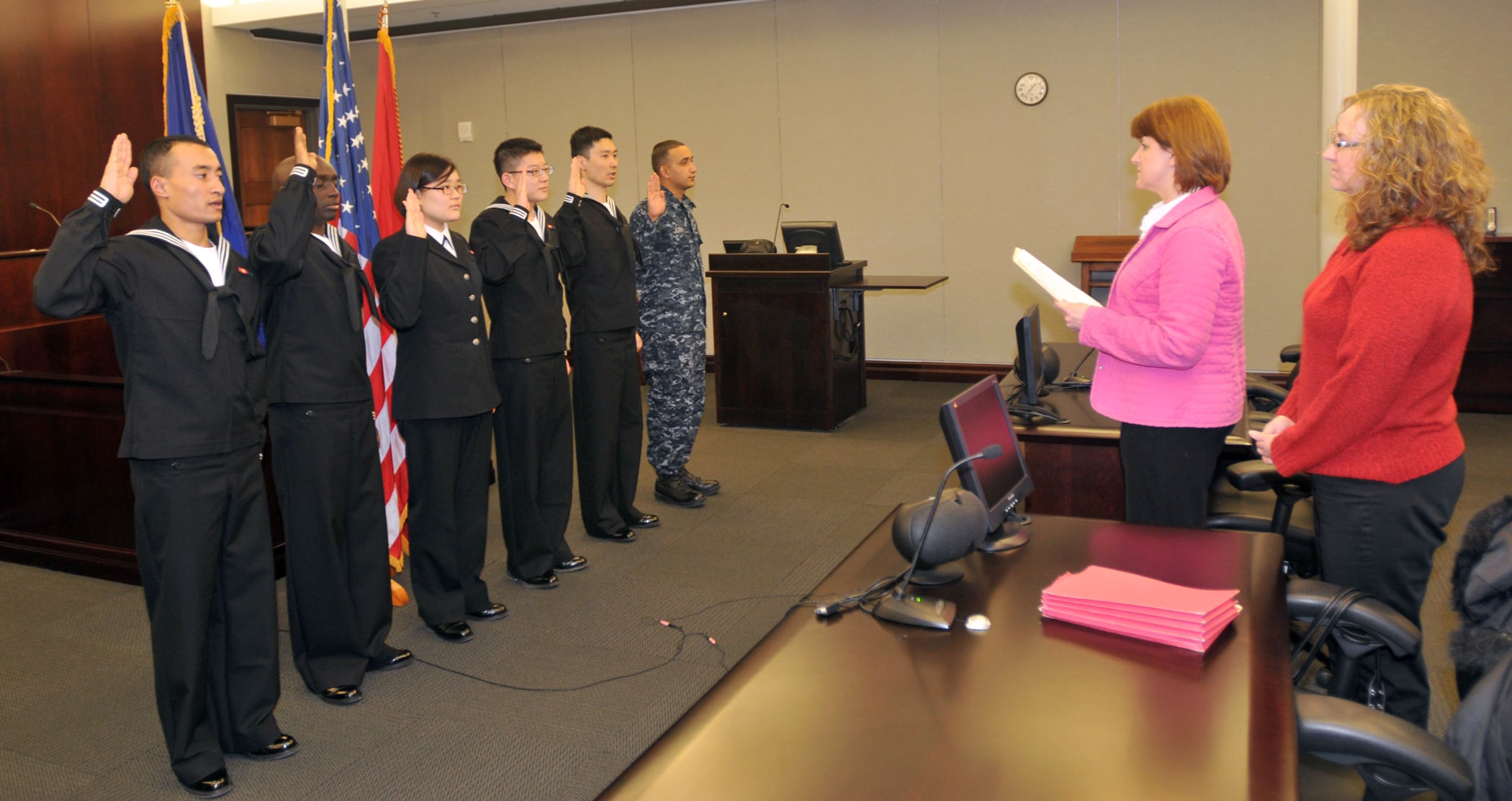Foreigners hoping to earn U.S. citizenship by serving in the U.S. military will have another year of uncertainty ahead as the Pentagon works through a backlog of applicants before deciding on the fate of a recruiting program targeting foreign nationals.
The Military Accessions Vital to National Interest, or MAVNI, program allowed foreign-born recruits with vital skill sets, such as translators, to become naturalized U.S. citizens after joining the military.
However, the program was frozen in July after it was found to have security flaws that left the military vulnerable to insider threats. No new recruits have been admitted since then, a defense official said on the condition of anonymity.
“It is still on hold,” the official said.
In October, the military announced new, more rigorous security clearance vetting standards and said recruits under the MANVI program would not be allowed to enter basic training until the security clearance review was completed and approved.
The Pentagon also introduced new rules on the length of time recruits had to serve before they would qualify for a certificate of honorable service, which is a requirement for getting expedited citizenship. Previously eligibility for the certificate began after one day of service, but the change lengthens the time in service to 180 consecutive days of active duty or one year in the reserves.
The freeze and new rules have been challenged in court and in October a federal judge ruled that the Pentagon had to provide the certificate of honorable service under the old rules to existing applicants.
For now, the military is focused on getting security clearance and background checks complete for the recruits still in the system, however military officials have not disclosed how many recruits that includes, or provide an estimate of how long into 2018 ― or beyond ― that would take.
Once all of those recruits are through the system, the Pentagon will review the program to see if it will be able to continue it, the military official said.
Defense Secretary Jim Mattis has said he would like to save the program if possible, and several other top military leaders have spoken of its value to the force.
“These programs are very important, especially as we’re looking at bringing in talent that can allow us to be more of an enabler or more of a facilitator to a force we are conducting security force assistance with,” said Command Sergeant Major John Troxell, the top enlisted adviser to Chairman of the Joint Chiefs Gen. Joseph Dunford.
Troxell said that it is essential for the military to have the ability to recruit for language skills and other expertise at a time when the force is expanding operations into more countries in the fight against violent extremist groups.
“Programs like MAVNI just allow us to get after that even more,” he said.
Tara Copp is a Pentagon correspondent for the Associated Press. She was previously Pentagon bureau chief for Sightline Media Group.





